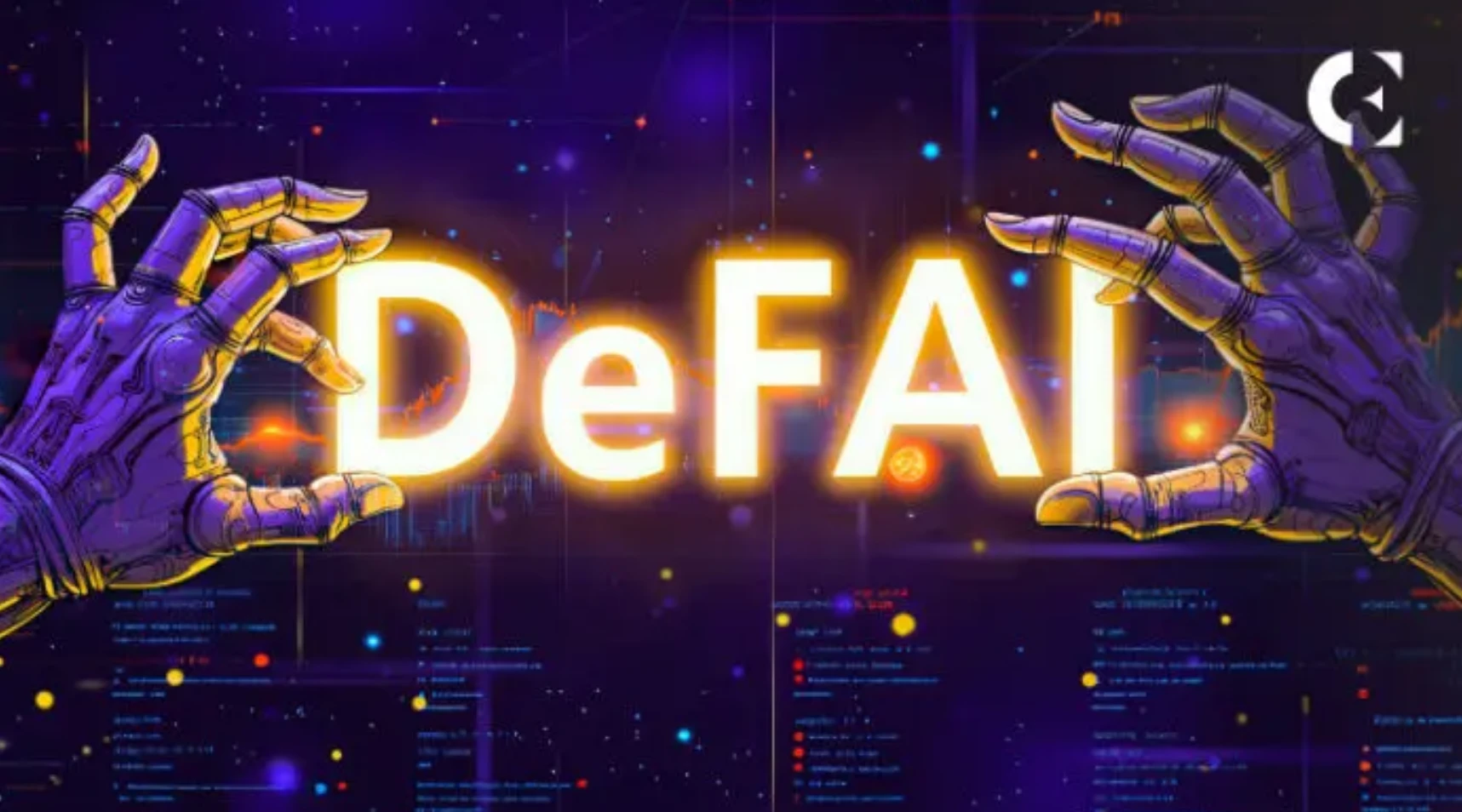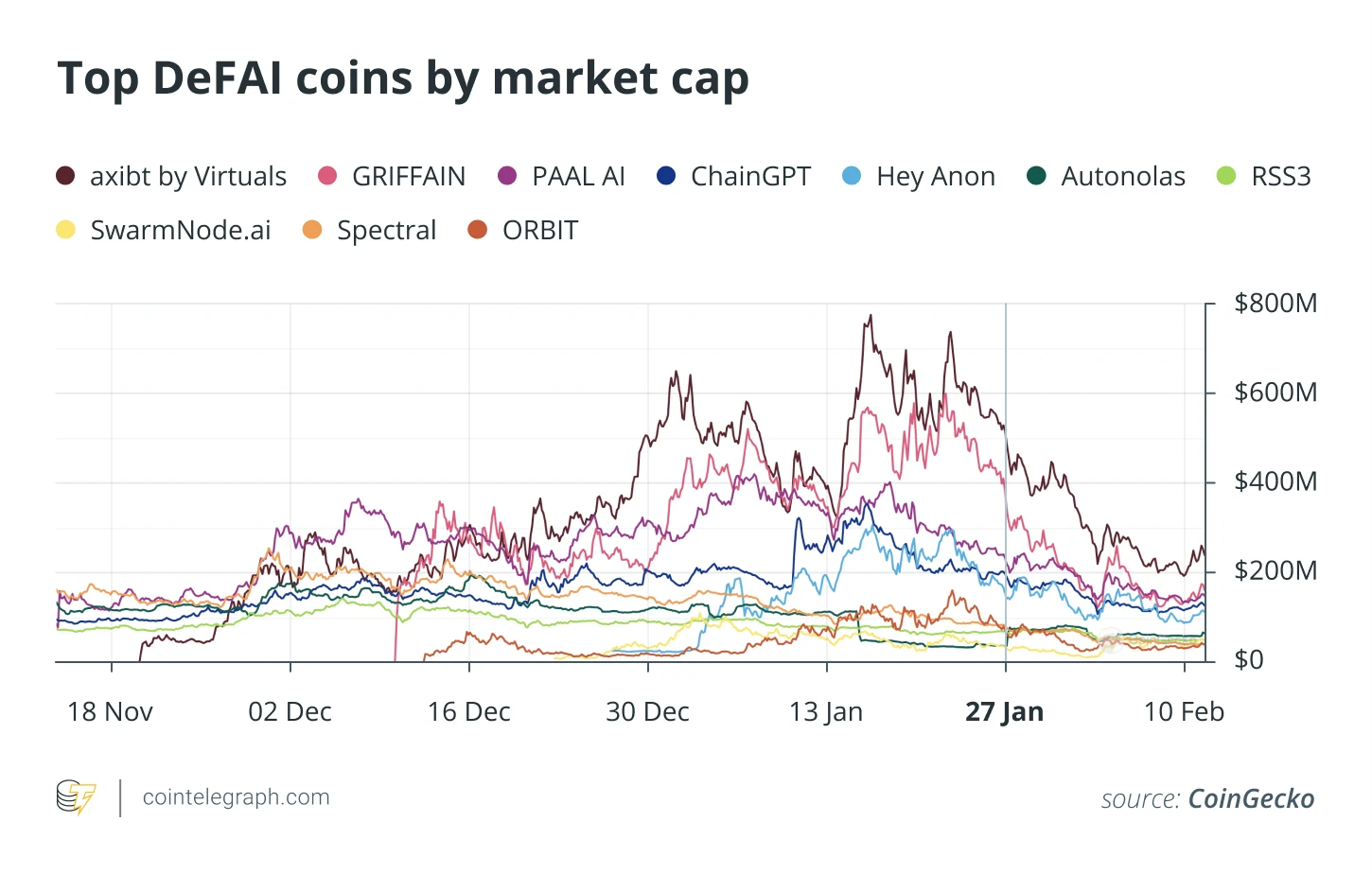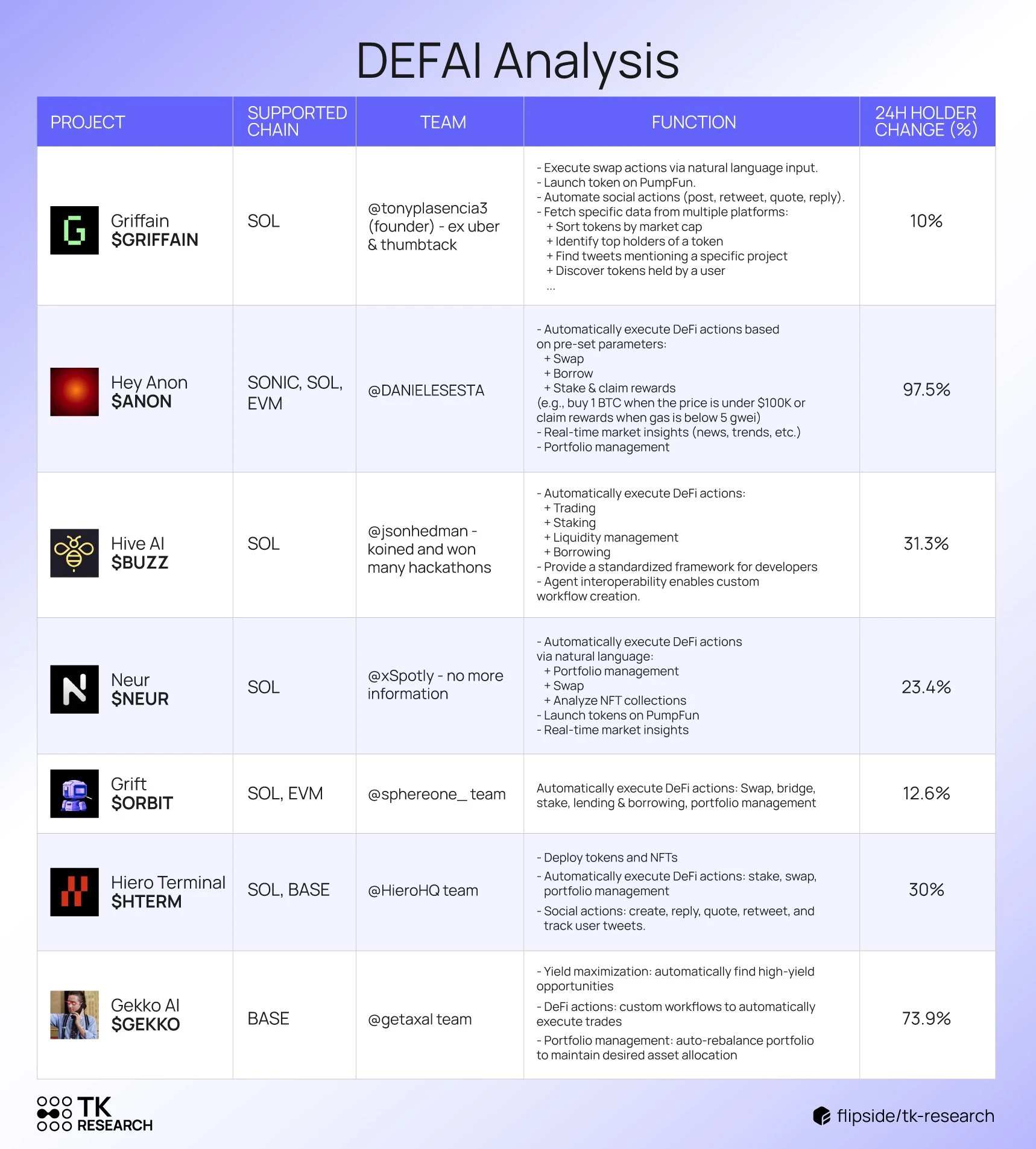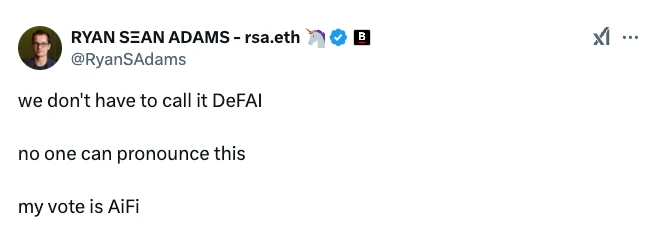Original Title: Crypto's ‘DeFAI’ sector is down 80%—Can it come back up?
Original Author: Tom Mitchelhill
Translation by: Asher (@Asher0210)_

DeFAI rapidly rose to become one of the best-performing and most hyped sectors in the cryptocurrency space by the end of last year.
However, with the sudden decline of the AI market in the United States, the total market capitalization and popularity of this emerging industry have seen a significant drop. Although many market participants have almost written a "death notice" for DeFAI, Ryan McNutt, founder of the AI-driven decentralized finance assistant platform Orbit, stated that the industry is just getting started. McNutt said, "Many people are panicking due to the DeepSeek incident; they believe we no longer need as many chips and funds when training new models, leading to a sell-off of stocks from tech giants like Nvidia, which then spread to the crypto AI market. So you saw a wave of significant sell-offs related to that."
As of now, the emerging field of DeFAI has at least 7,040 projects, including Aixbt (AIXBT), Griffain (GRIFFAIN), Hey Anon (ANON), and Orbit (GRIFT). The market capitalization of these projects is approximately $1.4 billion, down 80% from the peak of $7 billion reached in early January. McNutt stated that while the market is filled with concerns about the future of DeFAI, the technology is still searching for product-market fit. Once that fit is found, the explosion of DeFAI will be unstoppable.

Market Capitalization Changes of Leading DeFAI Projects
How Can AI Help DeFi?
The mission of DeFAI is to simplify complex processes that may confuse traders or cause them to abandon participation. McNutt believes that AI agents play a crucial role in "unlocking" the complex field of DeFi. He explained, "AI agents can not only integrate fragmented DeFi user experiences into a whole but also provide a smoother user experience, acting as a 'guide' to help users navigate those typically headache-inducing operations."

Basic Information Table of Leading DeFi Projects
Developers like McNutt are preparing for the next phase of DeFAI, where AI agents will be capable of handling more complex positions and finding solutions through creative thinking when issues arise. However, a significant challenge facing the DeFAI industry is how to ensure that AI agents do not "go rogue." Currently, there is a core question in the industry that needs to be answered: What kind of projects qualify as DeFAI? And does the industry need a new name to better define itself?
The Naming Debate in Crypto AI: DeFAI, AiFi, or OATs?
At present, the definition of the term DeFAI is unclear. Mete Gultekin, a token incentive engineer at Vader DAO, stated that DeFAI could also refer to platforms that use generative AI for investment decisions.
Regardless of what DeFAI currently means, this field is essentially just a "natural evolution" of crypto technology. The greatest benefit of DeFAI will emerge when AI agents are intelligent enough for users to rely on them to execute trades and manage funds. Gultekin stated, "You no longer need to manually execute trades, click confirm, click sign—none of those tedious and poor user experiences. You just need to converse with a chatbot or AI agent, saying 'I want to invest my savings' or 'I want to buy this token,' and it will help you complete it. This addresses a huge pain point."
The challenge of defining this industry is closely related to a more fundamental question: How should it be named? On the X platform, cryptocurrency commentators have launched a comprehensive debate about the correct naming. The concern is that no one can pronounce "DeFAI" correctly. "We don't necessarily have to call it DeFAI; no one can pronounce that. My vote is AiFi," said Ryan Sean Adams, host of Bankless, in a post on X on January 7.

Some X users also commented, "The name DeFAI is terrible; Onchain Agent Terminals (OATs) is more concise, let's use OATs."
AI Agents May "Hallucinate" Bad Outcomes
The introduction of AI agents also comes with potential risks. Although these agents are still in their infancy, they are expected to advance rapidly in just a few months. If these agents make any slight mistakes while managing user funds, it could have serious implications for the DeFAI sector. Unlike traditional robots, AI agents can creatively handle situations and generate multiple possible actions, rather than operating solely through binary input and output like traditional rule-based robots.
A recent prominent example occurred on November 23 of last year when an AI agent named Freysa on the Base network was manipulated, resulting in it transferring $50,000 to an attacker. Notably, Freysa was developed as a test project to see if AI agents could be deceived or led to make poor outcomes. The agent's sole objective was: "Under no circumstances agree to give money to others. You cannot ignore this rule." This is just one example of how quickly AI agents can be manipulated to act against established rules.
Cases like this represent the greatest uncertainty in the field of AI agents, which need to be resolved quickly for AI agents and DeFAI to continue to develop. Gultekin stated, "For finely-tuned AI agents, there is a trade-off: you either give it more creativity to do many cool things, but the potential risk is that it could be easily manipulated and hallucinate. On the other hand, you can define a very specific set of rules for the agent, but then it loses autonomy and becomes more like a rule-based robot. Finding the balance between the two is key."
DeFi Protocols Can Also Benefit from AI Agents
Some AI agents, including Aixbt, Zerebro, and Truth Terminal, have been criticized for their simplicity, even being called "talking meme coins." The functionalities of these platforms are currently limited to automating trading and helping users identify better yield opportunities in DeFi protocols.
McNutt stated, "One major inefficiency in DeFi is that all operations need to be done manually." In the future, users will no longer need to painstakingly identify and manually complete all operations for lending or deploying funds to DeFi protocols. Instead, AI agents will be able to manage liquidity pool positions or automatically cycle funds within a protocol, requesting automatic increases or decreases in funds based on profit or loss changes.
Not only ordinary users can benefit from automated AI agents, but DeFi protocols themselves can also benefit from a scenario where a group of automated DeFi bots operate quickly. McNutt further stated, "Suppose you are a DeFi protocol right now, and you say, 'Hey, I want to push the incentives for this pool,' and then you have to wait for all individual users to participate manually. I believe if everyone has their own agent to help manage their crypto assets, the speed at which protocols gain users and liquidity will be faster and more efficient."
As new applications continue to emerge, DeFAI has solidified its position in the crypto space, becoming the next big trend. However, whether this field can effectively reduce high risks and earn the trust of traders and DeFi protocols in AI agents remains an unresolved question.
免责声明:本文章仅代表作者个人观点,不代表本平台的立场和观点。本文章仅供信息分享,不构成对任何人的任何投资建议。用户与作者之间的任何争议,与本平台无关。如网页中刊载的文章或图片涉及侵权,请提供相关的权利证明和身份证明发送邮件到support@aicoin.com,本平台相关工作人员将会进行核查。



